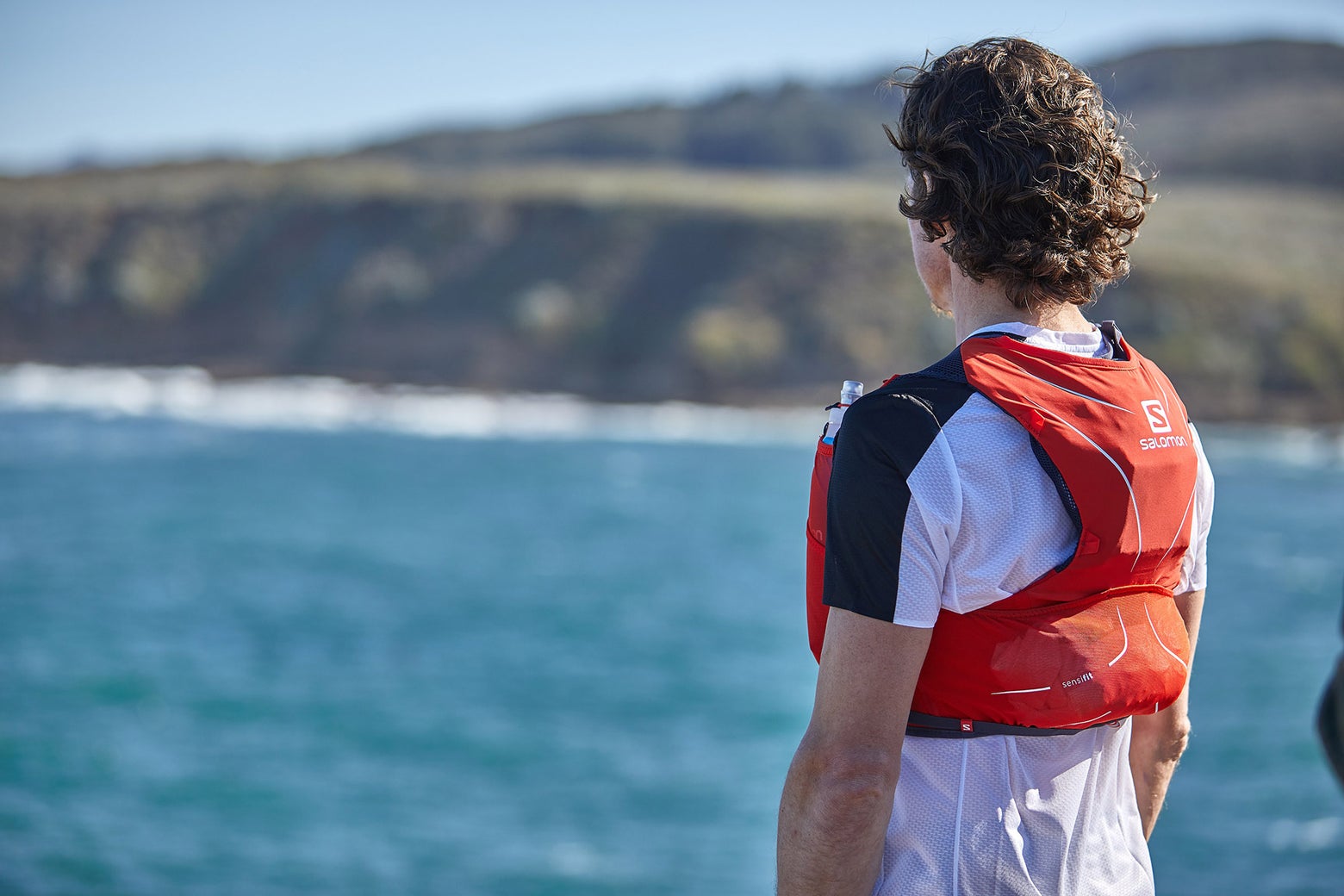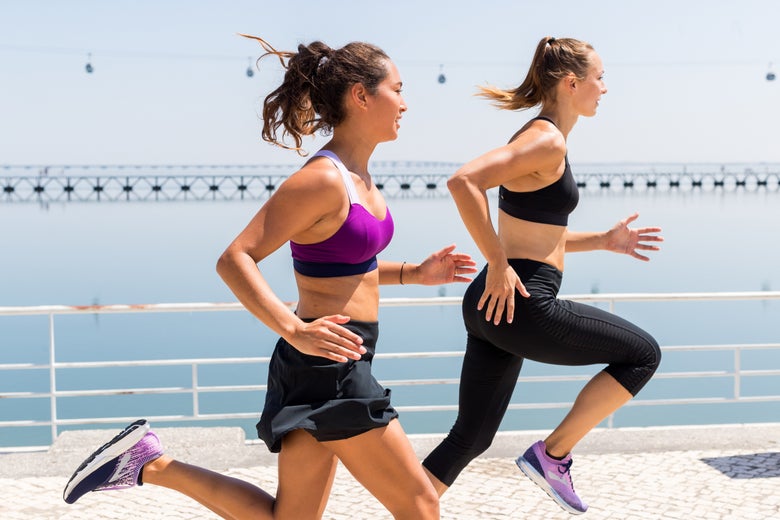How to Prevent Chafing While Running
From anti-chafe balms to proper clothing to hydration, here are our best tips to prevent rashes caused by running
Published: June 18, 2021
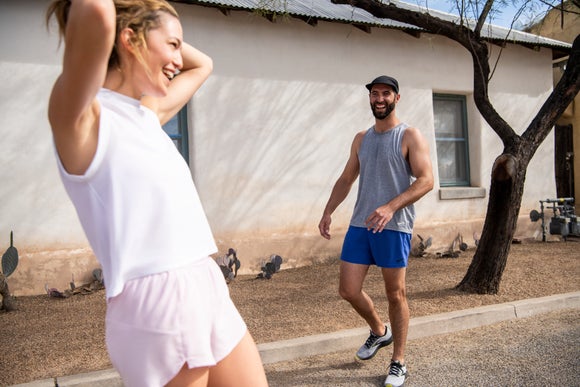
Nothing brings us down from our runner's high like experiencing chafing—the telltale sign of a hot spot on a sensitive area of the body warning us that a rash is imminent. From the novice runner to the experienced athlete, most of us have experienced chafing at least once in our lifetime. Chafing is a skin irritation that can leave painful, red stinging marks on the body and is primarily caused by repeated sandpaper-like friction and rubbing (either from skin-to-skin contact or from fabric-to-skin).
Whenever we exercise and work up a good sweat, our bodies produce tiny salt crystals, and this salt residue remains on our skin even after our sweat dries. The concentration of salt on dry skin can increase chafing, and if we add warm weather and sensitive skin to the mix, we have a recipe for fiery skin irritation. But you do not have to put up with the annoying burn or allow it to derail your performance and rob you of the joy of running. There are preventative steps you can take that will help eliminate the chafing from your runs, because at the end of the day, the goal is to burn calories, not your skin.
Step One: Lubricate & Protect
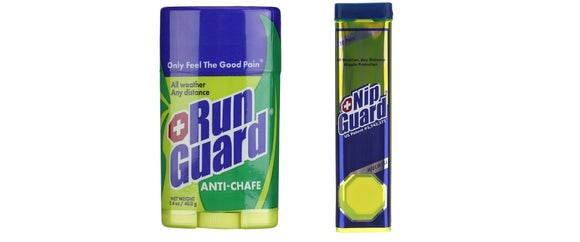
Before you lace up your running shoes and hit the road, you can take steps to eliminate chafing by applying a protective layer of moisturising lubricant to the sensitive areas of your body that are susceptible to rashes. Some common areas prone to skin irritations include the chest, underarms, thighs, groin, abdominal area, back, and feet. The use of anti-chafing sticks, creams, and powders beforehand creates a protective skin barrier, repelling moisture as you move and exercise. These anti-chafing balms also allow sweat to easily glide off your skin, preventing harsh irritation from skin-to-skin friction.
Some areas of the body may require extra care beyond a lubricant. For male runners, the nipples are a highly sensitive area due to the direct skin-to-fabric contact, but there is an easy solution in the form of adhesives like Nip Guards. These medical-grade adhesives are designed to prevent abrasion and chafing from the friction caused in the chest area. They will remain on for the duration of your workout (no matter the weather) and can be removed painlessly after your run.
Step Two: Fabric & Fit
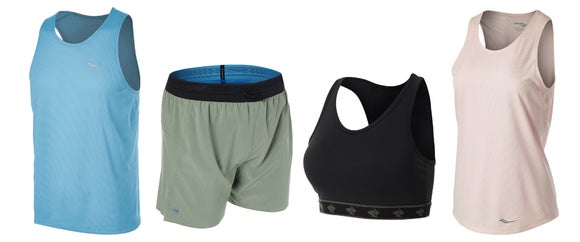
The type of fabric that makes up your running gear also plays a contributing role in the prevention of chafing. The tried-and-true rule is saying "YES" to seamless and tagless designs and saying "NO" to cotton. Cotton absorbs a lot of moisture and is prone to getting wet quickly and taking longer to dry. The rubbing of the wet fabric against your skin is a surefire way to cause chafing, so save the cotton apparel for soft post-run comfort. Instead, opt for quick-drying or moisture-wicking materials such as polyester, lycra, nylon, or spandex, which are breathable and lightweight fabrics that transport sweat away from your skin. Most running apparel brands have enhanced fabric technologies with moisture-wicking, quick-drying, and anti-odor properties to keep you cool and dry by not allowing sweat to saturate through your clothing (goodbye stickiness!). Also look for design features like mesh or perforations for added breathability, and if your gear is not tagless already, be sure to cut the tag off to avoid any annoying scratching during your run.
In addition to selecting the right synthetic fabric, the next step is ensuring the appropriate size and fit for your running gear. Loose or tight-fitting clothes cause more friction from fabric-to-skin contact, so look for the ideal ergonomic fit—the Goldilocks standard of not too big and not too small. For men, be mindful about running shirts and tanks that rub against your chest, which can cause skin irritation. For women, make sure your sports bras are properly fitted, secure, and comfortable, as well as seamless in their design to avoid any chafing from the bra's band or straps. When it comes to running shorts, look for shorts that feature flatlock seams to avoid uncomfortable rubbing from the inseam on the inner thighs. No matter the type of running gear, having the appropriate fabric and fit will enable you to run in chafe-free comfort.
Step Three: Hydrate
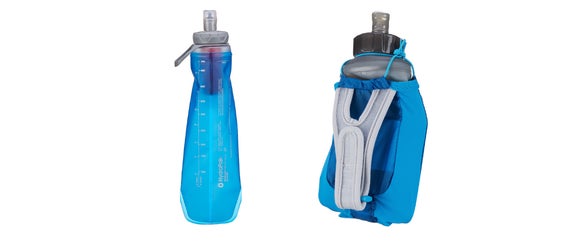
Since dry air and dry skin can contribute to chafing as well, being mindful of our water consumption throughout the day is vital in preventing skin abrasion and rashes. Especially on our longer runs, staying hydrated allows our bodies to keep perspiring, which prevents sweat from drying into salt crystals and, in turn, reduces chafing.
There are several hydration products and accessories that offer convenient access to water during your run. From handheld bottles with adjustable straps to waist belts with soft flasks, there are plenty of lightweight options to choose from that will help keep you hydrated without derailing your performance. If you plan on hitting the trail or going on an extended run, you might want to consider a hydration pack or vest, which will provide more fluid capacity to quench your thirst. When wearing a hydration belt or vest, make sure to tighten the straps for a secure, snug fit to avoid any uncomfortable bounce on your run (otherwise, bounce can cause friction, which in turn leads to chafing).
